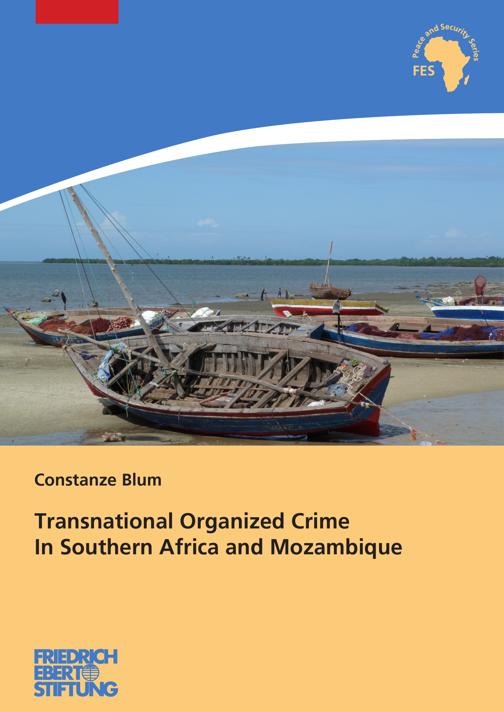Publikationen der StiftungTransnational organized crime in Southern Africa and Mozambique Titel
Titelaufnahme
- TitelTransnational organized crime in Southern Africa and Mozambique
- Verfasser
- Körperschaft
- Erschienen
- Umfang36 Seiten
- AnmerkungLiteraturverzeichnis Seite 31-36
- SpracheEnglisch
- SerieFES peace and security series ; 19
- DokumenttypDruckschrift
- Schlagwörter (LOCAL)
- Schlagwörter
- Geografika
- URN
- Das Dokument ist frei verfügbar
- Nachweis
- Archiv
With the adoption of the 2030 Agenda for Sustainable Development by the United Nations General Assembly on 25 September 2015 the international community committed itself to end all forms of poverty by 2030. The 17 Sustainable Development Goals represent a comprehensive and ambitious collection of targets, enshrining the combat against organized crime. The link between state fragility, organized crime and development has become more and more recognized by policy makers over the last years. The World Development Report 2011 already stated that conflict and organized crime have the same detrimental effect on development, reducing progress by nearly 20%. Constanze Blum`s contribution to the Peace and Security Series seeks to examine the complex relations between the state, transnational organized crime (TOC) and development in Southern Africa. Embedded in an historical perspective, the study analyses the different forms of transnational organized crime in the region. The author argues that the relation between the state and organized crime can take a variety of forms, depending on different factors such as the commodity trafficked or the geographical region in focus. In her analysis, Blum highlights that it is not necessarily the weakness of the state per se that causes organized crime to flourish, but that certain sectors of the state itself often play an enabling role. The findings suggest that conventional approaches to fight transnational organized crime, which merely focus on strengthening the security sector (both on a national and regional level), are therefore not very effective. More holistic approaches, which consider social and economic factors as well as the nature of the postcolonial state, have to be taken into account when designing regional security strategies.
